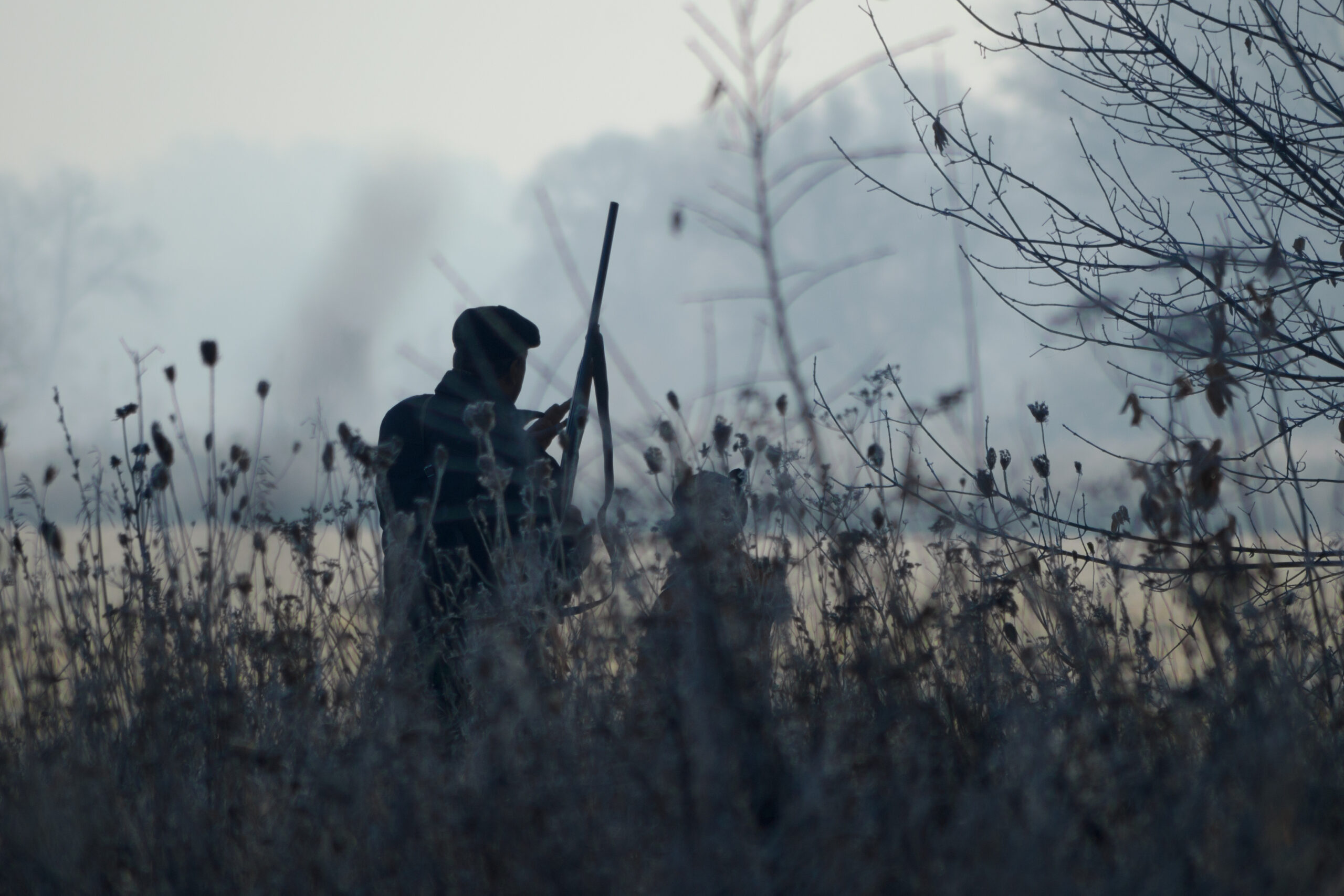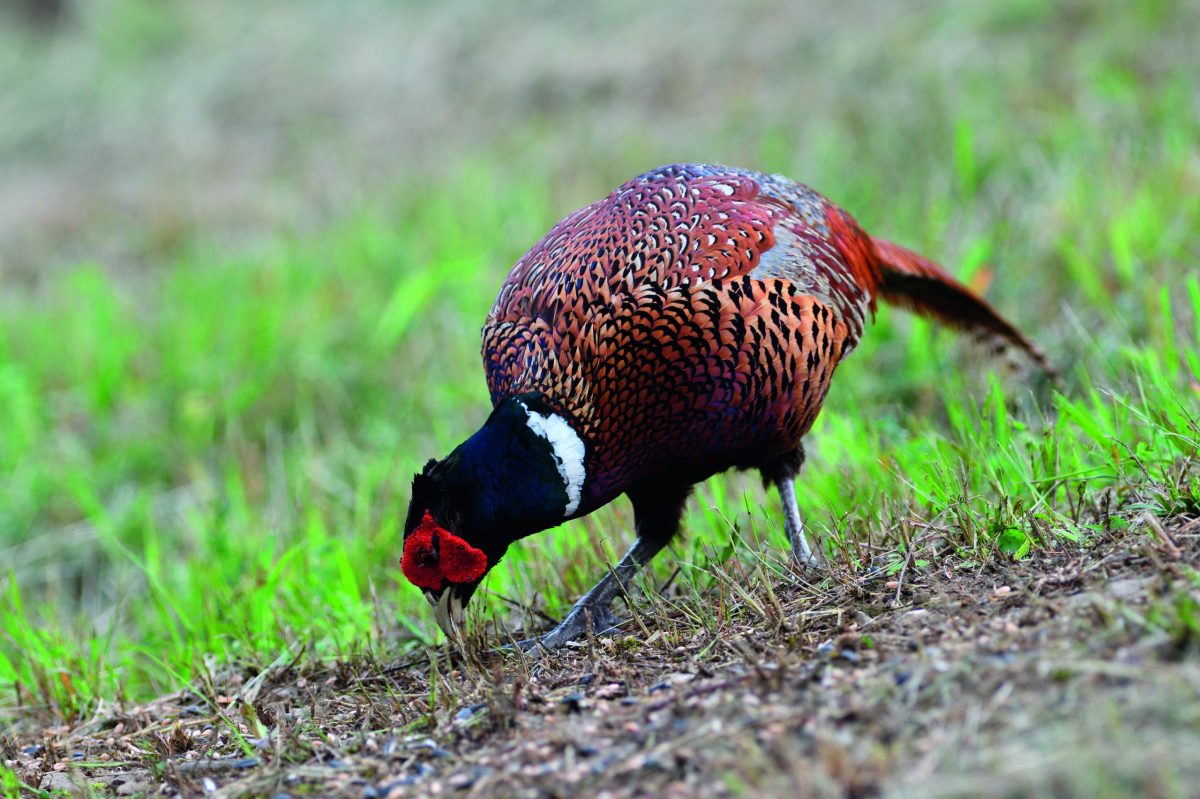The role of a game keeper’s wife
Ever since man first managed birds for sport, the gamekeepers wife has been one of the unsung heroes of the sporting world. Her comfort has been severely compromised, her privacy continually invaded, her dignity often denied, her health and safety frequently jeopardised, and her faith and loyalty tested to an extent few other women would tolerate. Of course things are not as bad as they were in the old days, when more than 10,000 keepers wives suffered many of the privations common to most country folk, as well as others peculiar to their husbands occupation, but even now many of the wives of our 3,000 or so full-time keepers have a lot to contend with. Yes, it is easy to jump into the 4×4 and drive rather than walk the five miles to the nearest shop or school, but the roses round the door fade somewhat when that long-promised holiday is cancelled yet again and the cottage is suddenly crammed with muddy Guns and beaters snowed in for the night and eating you out of house and home.
While modern families are much better protected by whole coveys of employment laws, in many cases long-term security of tenure is almost only as good as last seasons bag. One old keeper I knew, Wally Fakes of Hampshire, lived with his wife Stella in no fewer than seven of Lord Cheshams cottages up to retirement in the 1980s. Not that the traditional keepers cottage was much to write home about. Often cramped, it commonly had to house families with up to eight or nine children, sometimes even with an extra keeper as a lodger to help with the bills. Not much privacy there! While the lavatory was inevitably outside, in the shape of the old thunder box, and the drinking water down a well, there was also plenty of moisture inside. Fred Ladham, one-time keeper at Blenheim, and his wife Iris, lost their two-year-old son to pneumonia when the pipes in their house froze, then burst and caused appalling damp.
Illness was of much greater concern then because the doctor had to be paid for, so people often suffered in silence, resorting to quack cures such as swallowing a live slug to get rid of a tapeworm! As well as being a nurse, expected to cope with both the many accidents in the field and illness in the home, many keepers wives had to run substantial kitchen gardens, also tending chickens and the odd porker or cow to supplement their husbands meagre incomes. After the animals and children were put to bed for the night she often took up craftwork by candlelight or oil lamp, laboriously making carriage rugs from the skins of cats and badgers which her husband shot and trapped in large numbers. She also made fox-skin muffs as well as moleskin mittens and skullcaps and, most tedious of all, moleskin waistcoats which meant skilfully putting together several score of skins. On top of that she would pluck and prepare all sorts of feathers for hats, fishing flies and so on.
At least this great industry helped to relieve the boredom and loneliness of living in a remote cottage when her husband was away tending to his duties. But for many it was especially difficult when their man was on nightwatch for poachers. Then fear, too, crept in, as every creak of the door, tap of a branch on the window and cry of some nocturnal creature brought a shiver to the spine. At Blenheim, in the early 1930s when they were first married, Harry Ward and his wife used to go out nightwatching together. She told me: I was too scared to stay in the house alone and used to sleep on a few sacks while he stood guard.
For many generations, married keepers were generally preferred because not only were they regarded as more stable than single men but also because their wives were required to help out with chores such as cleaning and cooking in the big house. For example, in 1945 in Dorset, when assistant keeper Len Maceys headkeeper father suddenly died, his boss, Wilfred Brymer, told him: You can take his job provided you get married. So he did. Len also recalled that not only would employers never take you on without a reference but also demand one for your wife and if that wasnt favourable, youd had it. Some keepers even openly advertised, in journals such as Gamekeeper Magazine, that they were prepared to marry to secure a position. On the other hand, there were some very strange ladies at the big house who could not tolerate female competition and would urge their husbands to take on single keepers only. Others would not tolerate children.
For example, at Salcey Forest in the 1930s, when Frank Foxy Hunts wife Betty became pregnant his extrovert employer, Madame Sauber, told him: There is no place for children here despite their long and successful relationship.Keepers wives have often been expected to help routinely with shoot lunches, both at home and in the field. George Cole, from a long line of keepers, remembers that when he was a child in Derbyshire in the 1920s, his mother used to be up half the night making the sandwiches for 30 or so beaters from a yard-long loaf and a 40lb tin of Fray Bentos bully beef. Others had to be prepared to cook meals for gentleman Guns visiting their humble abodes, sometimes including unexpected and titled guests. Harry Churchills wife Dorothy recalled one tea in the 1930s when the Duke of Gloucester turned up. As he stepped through the door his first words were, May I use the loo?, but he had no trouble finding it as we had Our Country Seat on the door. That said, the wives were given an allowance for each meal.
Many wives have also routinely helped with countless other duties, such as in the rearing field and feeding ferrets and dogs as well as plucking, skinning and gutting game, all the while acting as peacemaker and spiritual leader for frequently difficult children who would rather help Dad trap a stoat than do homework, and at the drop of a cap would skive off school to go beating. And at the end of all this, what did the wives get? Virtually zero holiday when married to a man with a full-time, year-round commitment. But just occasionally they did briefly escape the muck and smell to join the fun of the Christmas party at the big house, where Lady Benevolent would dispense gifts for the children.
Today, much has changed. While many of the old pressures have gone, the modern keepers wife is still very much in the firing line. These days she must be skilled in PR, and along with her increasingly adventurous food, she is often expected to dispense charm and informed conversation for increasingly demanding and discerning Guns. And not only must she be highly practical and resourceful in a male-dominated world but also be a thoroughly modern mother, embracing new technology both at home and in the field.
Thank goodness that for many women this way of life remains very much in the blood, to the extent that there is now a small but growing band of professional female gamekeepers. I wonder what their husbands or partners think of it all? But thats another story.








